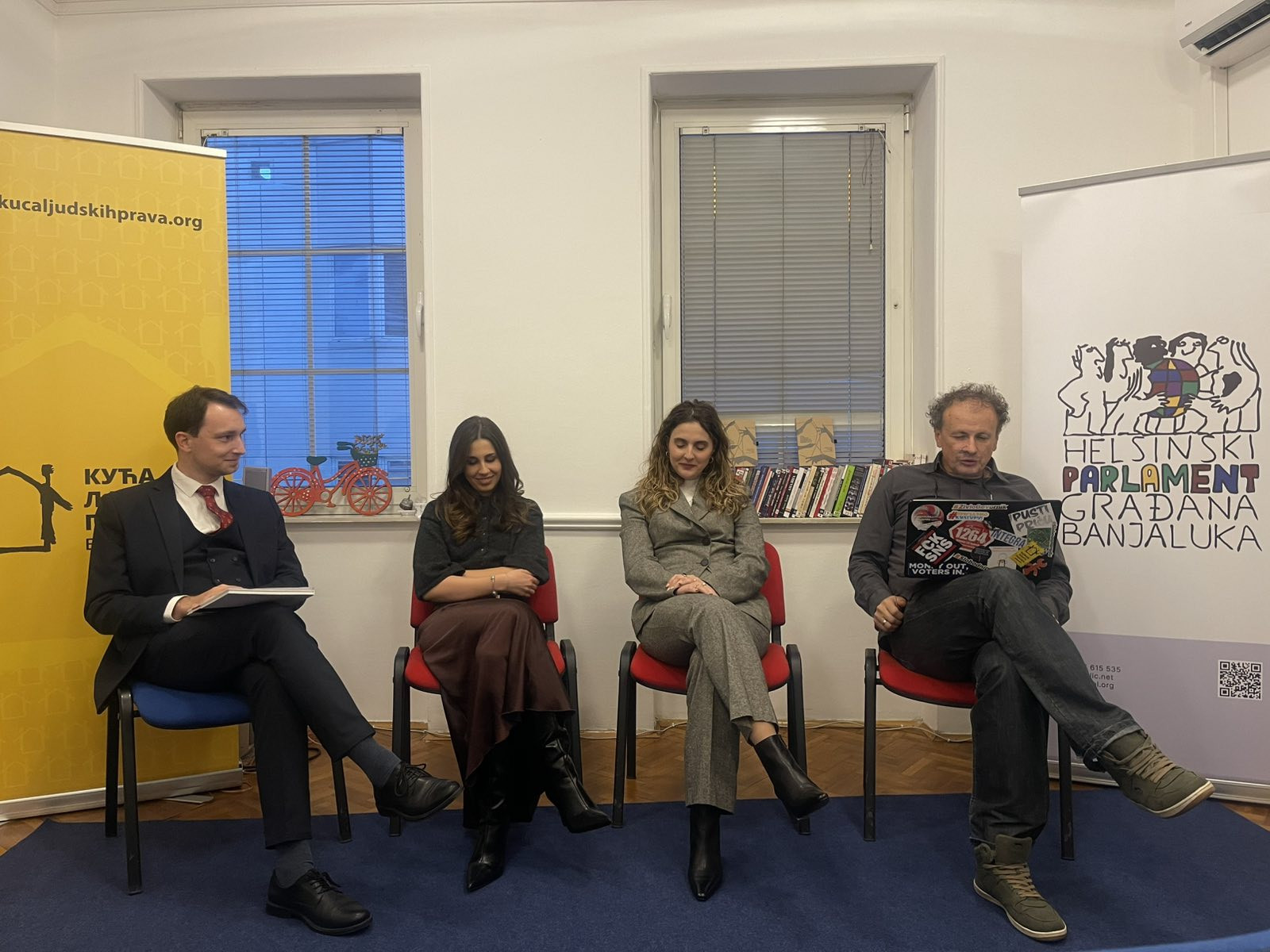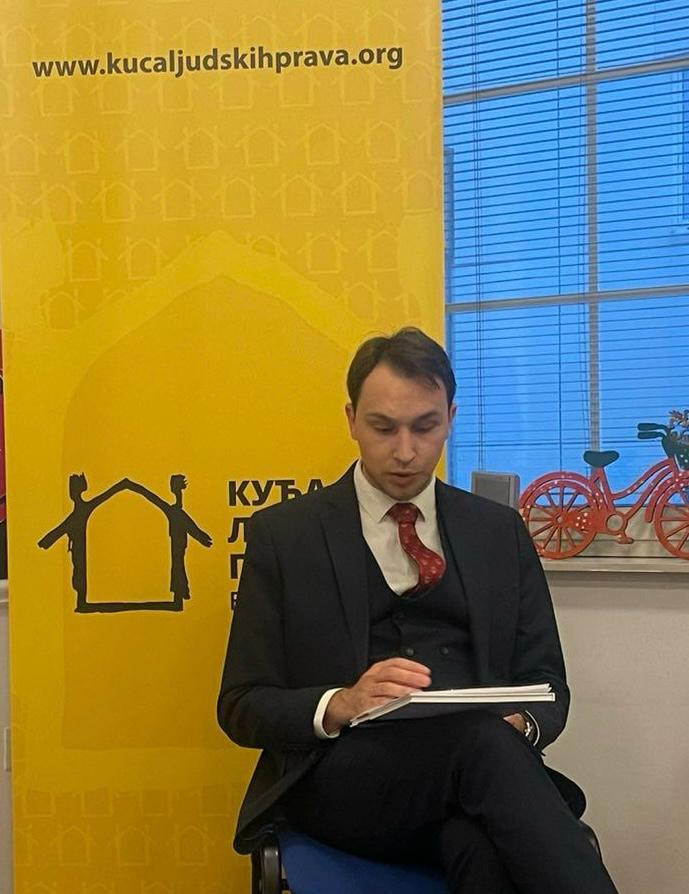
On Saturday, October 25, 2025, the Bosnian-Herzegovinian American Academy of Arts and Sciences (BHAAAS) organized a panel discussion titled “Synthetic Child Pornography and Violence Against Children in Online Spaces” at the Human Rights House in Banja Luka.
The goal of the panel was to bring together experts from various fields to analyze the contemporary challenges arising from the development of artificial intelligence and its potential misuse in the context of child abuse.
Panelists presented diverse perspectives—from legal and media viewpoints to psychological and institutional ones—emphasizing the need for an interdisciplinary approach and stronger cooperation among relevant actors.
As noted by Filip Novaković, lawyer and BHAAAS member, the phenomenon of synthetic child pornography demonstrates how rapidly technology can outpace our ability to respond. “Although it does not depict real children, such content deepens the normalization of violence and undermines fundamental child protection values,” he said.

“It is crucial to discuss this issue openly, professionally, and responsibly—not to spread panic, but to understand and prevent new forms of digital abuse. Synthetic child pornography raises a series of legal, ethical, and technological dilemmas. While it involves digital creations, its consequences are very real—they affect how society perceives children, the boundaries of privacy, and the understanding of abuse. It is not a virtual problem, but a real social issue that tests the limits of our laws, technology, and morality,” Novaković emphasized, adding that although the line between the real and digital world is increasingly blurred, our responsibility toward children must remain absolute.
Other participants included Dr. Srđan Puhalo (psychologist), Tamara Babić, MA (psychologist and neuroscientist), Bojana Pepić (attorney), and Slobodan Radosavljević (President of the BHAAAS HARTS Department). Through an interactive discussion with the audience, participants underlined the importance of establishing a comprehensive system of prevention and education, as well as raising public awareness about this issue.
The event concluded with a message that protecting children in digital spaces must be a priority for all social institutions, and that open dialogue and collaboration are key to creating a safer online environment.
With this event, BHAAAS once again reaffirmed its commitment to contributing to the development of socially responsible policies and practices in Bosnia and Herzegovina through science, education, and public dialogue.